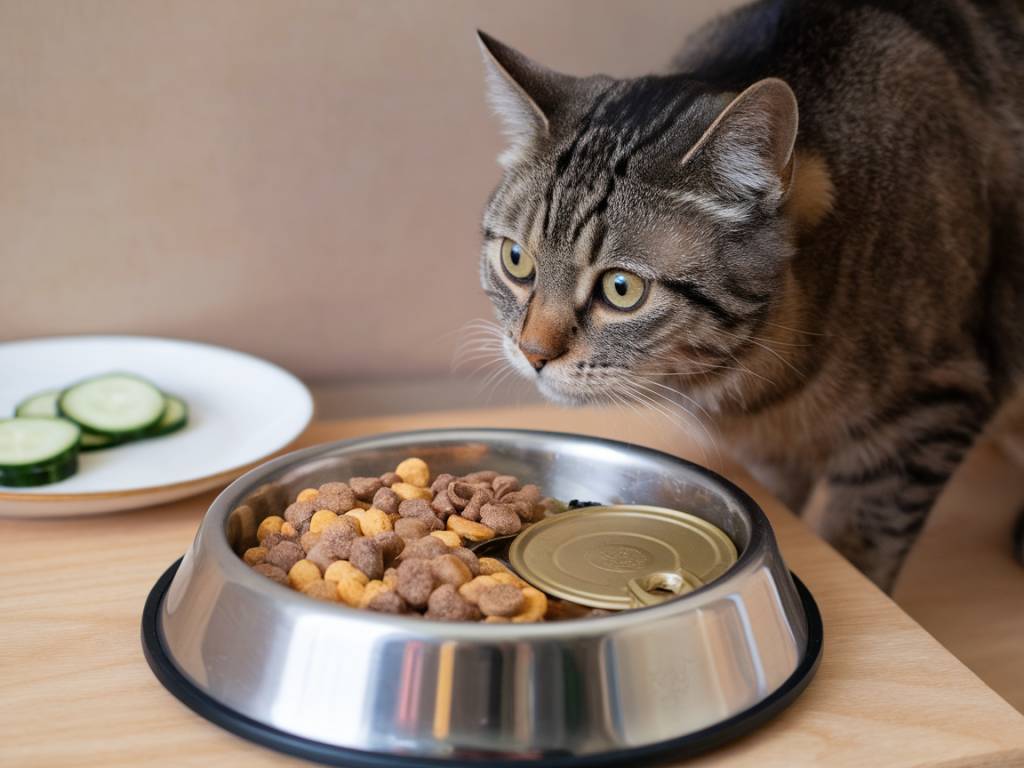As a loving cat parent, you want nothing but the best for your furry friend. Diet plays a significant role in your cat’s overall health and wellbeing, and when something isn’t quite right, it could be time for a change. While it’s not always easy to determine whether your cat’s diet needs an adjustment, certain signs can help you deduce. A watchful eye and knowing what to look for can ensure that your cat remains vibrant, healthy, and happy.
Understanding Your Cat’s Dietary Needs
Cats are obligate carnivores, which means that their diet requires nutrients that are primarily found in meat. Proteins and fats are essential, while carbohydrates should be kept to a minimum. Cats also need specific vitamins and minerals such as taurine, vitamin A, and arachidonic acid that they can’t produce on their own. Therefore, their diet must be specially formulated to include these critical components.
Signs Your Cat’s Diet Needs a Change
There are a variety of indicators that your cat’s current diet may not be meeting their needs. If you notice any of these signs, it might be time to reconsider what you’re feeding your feline friend.
- Lethargy or Lack of Energy: If your usually energetic cat appears lethargic or uninterested in play, it may indicate that they’re not receiving enough nutrients from their diet.
- Weight Gain or Loss: Unexplained changes in your cat’s weight could be a signal that they’re not receiving the right balance of nutrients.
- Excessive Thirst: If your cat seems unusually thirsty, it might be consuming too much salt or its diet may be lacking adequate moisture.
- Changes in Coat Condition: A dull, dry coat or excessive shedding can be an indication that your pet’s diet is deficient in essential fatty acids.
- Frequent Hairballs: While hairballs are common, an increase in their frequency can point to dietary issues.
- Digestive Issues: Regular vomiting, diarrhea, or constipation might suggest that your cat’s current food is hard to digest or doesn’t agree with them.
- Poor Appetite: A lack of interest in food or skipping meals can indicate that your cat doesn’t find their diet palatable anymore.
- Bad Breath: Oral health issues, reflected in bad breath, can sometimes be addressed by a change in diet.
Assessing Your Cat’s Current Diet
Prior to making any changes, it is important to take stock of your cat’s current diet. Consider factors such as:
- Ingredients: Is the food made predominantly of meat sources or is it filled with carbohydrates and fillers?
- Brand Reputation: Is the brand known for quality products, or have there been recalls or negative reviews?
- Age-Appropriate Formulation: Is your cat’s food suitable for their life stage, whether kitten, adult, or senior?
- Special Nutritional Needs: Does your cat have specific dietary requirements, such as a need for low phosphorus formulations for kidney health?
How to Adjust Your Cat’s Diet
Once you’ve identified the need for change, it’s important to transition your cat to a new diet cautiously and deliberately to avoid digestive upset.
- Consult Your Veterinarian: Before making any dietary adjustments, it is wise to consult your veterinarian. They can provide guidance on the best diet based on your cat’s health status and any specific nutritional requirements.
- Research and Choose a New Food: Consider high-quality brands that emphasize their use of meat as the primary ingredient and contain minimal fillers. Always prioritize those with a good reputation and positive reviews from other pet owners.
- Gradual Transition: Start by mixing a small amount of the new food with your cat’s current food. Gradually increase the ratio of the new food while decreasing the old over 7-10 days.
- Monitor Your Cat’s Response: Pay close attention to your cat’s behavior, appetite, and any signs of digestive distress. If you notice any adverse reactions, consult your veterinarian for advice.
- Diversify Textures and Flavors: Some cats may appreciate diversity in their diet, offering a mixture of wet and dry foods to keep them interested and ensure balanced hydration levels.
Additional Tips for Maintaining a Healthy Diet for Your Cat
Beyond adjusting your cat’s diet when needed, there are additional measures you can take to ensure your cat maintains a healthy lifestyle:
- Regular Vet Check-Ups: Routine veterinary visits are crucial for early detection of dietary-related health issues and adjustments to dietary plans as your cat ages.
- Maintain Proper Hydration: Encourage your cat to drink water by providing fresh water daily. Consider using a pet water fountain to increase water intake.
- Treats in Moderation: Limit treats to prevent obesity and ensure they’re not substituting the nutritional balance found in their daily meals.
- Outdoor Supervision: If your cat enjoys outdoor adventures, supervise them to prevent ingestion of harmful plants or creatures that could affect their health adversely.
- Observe Behavioral Changes: Remain vigilant about any changes in behavior, appetite, and physical condition that could suggest a dietary issue.
By recognizing the signs and understanding how to make dietary changes, you can actively contribute to the health and wellbeing of your beloved pet. Remember, when in doubt, consult with your vet to ensure you’re making the best choices for your feline friend. Your careful attention and commitment to a nutritious diet are key components in helping your cat lead a long, joyful life.
By Lisa Tissed

